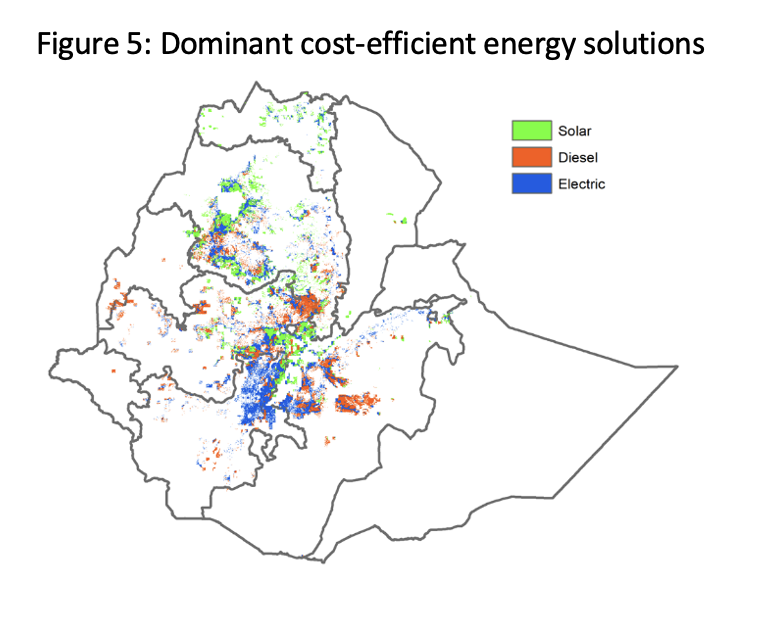Agriculture accounts for 34% of Ethiopia’s GDP and 67% of its employment, and development of irrigation is widely seen as a promising option to boost agricultural production and enhance agricultural resilience in the country. However, energy use in irrigated agriculture in Ethiopia is insignificant at present, and access to energy sources is often lacking, hampering the spread of irrigation technologies. The cost effectiveness of different energy solutions for irrigated agriculture is also likely to vary depending on the location of the farm and the type of crop.
In a new Oxford Policy Management working paper, we outline the results of our analysis on the promising development potential of three forms of energy solutions for groundwater irrigation in Ethiopia: grid-connected electricity, off-grid solar photovoltaic (PV), and diesel energy.
The study—the first integrated irrigation-energy planning analysis in Ethiopia at a national scale—modeled irrigation water demand for production of maize, wheat, vegetables, and pulses. It estimated energy requirements for irrigation, and the most cost-effective placement of the three energy options. The modeling approach estimates the groundwater irrigation potential under each energy solution, approximating the crop mix and determining the scale of expanded groundwater production, considering constraints of land suitability, quantity of renewable water resources, and market potential of irrigated crops.
The study shows that grid electricity is the most cost-effective energy solution in areas close to the current transmission network, while solar PV is more cost-effective than diesel in the north and in eastern lowlands of Ethiopia (Figures 1-4). Solar PV is more cost-effective for vegetables, maize, and partly wheat but not for pulses.
The study also identified the energy solution with the highest predicted adoption probability in each land pixel (Figure 5).

The analysis shows that by 2030, there is a potential to add about 1.1 million hectares of groundwater irrigated area to produce maize, wheat, vegetables, and pulses with small-scale irrigation in Ethiopia. For about 25% of this potential, solar irrigation is the most cost efficient, while on-grid electricity is cost efficient for about 43 percent of the potential. Diesel is the most cost efficient of the three energy options for about 32 percent of the potential, mostly in areas far from the electric grid and without good solar potential, as well as for low value crops such as pulses.
An energy policy reform that removes subsidies on fossil fuels will help promote the use of irrigation systems powered by solar PV significantly. Government and other stakeholders should promote adoption of irrigation technologies based on solar, electric grid , and diesel, with consideration on the type of energy most cost-effective for the location and the crop to be irrigated.
Dawit Mekonnen and Hua Xie are Research Fellows with IFPRI’s Environment and Production Technology Division. This research is not yet peer-reviewed.
This project was funded with UK Aid from the UK government under the Applied Research Programme on Energy and Economic Growth (EEG), managed by Oxford Policy Management.







